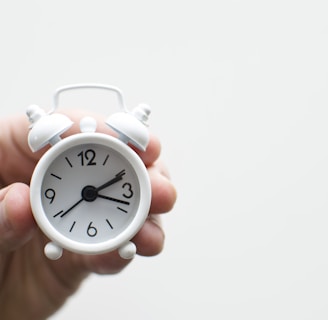The Great Time Debate: Why We Still Flip Our Clocks
As we approach the end of Daylight Saving Time (DST) in 2024, the debate over its relevance and impact on daily life continues, with arguments ranging from energy conservation to health effects.
SCIENCE
8/19/20242 min read


The Origins of Time Tinkering
The concept of Daylight Saving Time was first humorously suggested by Benjamin Franklin, who, in his wit, proposed that Parisians could save candles by waking up earlier. However, it wasn't until World War I that Germany adopted DST as a way to conserve coal. Since then, it's been a rollercoaster of legislation, with the U.S. finally settling on a start in March and an end in November, thanks to the Energy Policy Act of 2005.
Energy Savings or Just a Myth?
Supporters argue that DST reduces energy consumption by extending daylight hours, thus reducing the need for artificial lighting. However, studies are mixed. Some suggest a modest energy saving, while others, like a report from the U.S. Department of Energy, found that the energy savings might be negligible or even negative due to increased air conditioning use in the evening.
The Health Conundrum
From a health perspective, the time change has been linked to everything from sleep disruptions to increased heart attacks in the week following the spring forward. Critics argue that the biannual time shift disrupts our circadian rhythms, leading to sleep loss, which in turn affects mood, productivity, and even safety on the roads due to drowsy driving.
Agriculture and DST: A Misalignment?
Originally, DST was thought to benefit farmers by giving them more daylight to work. However, modern agriculture, with its reliance on machinery that operates around the clock, finds DST more of a nuisance than a help. Farmers have to adjust their schedules, which can be particularly challenging for livestock and dairy operations.
The Global Perspective
Globically, DST is a patchwork. While the U.S. and parts of Canada adhere to it, countries like Russia and China have abandoned it, citing logistical nightmares and minimal benefits. In Europe, there's been talk of abolishing it, but as of 2024, the debate lingers, with Mediterranean countries favoring the extra evening light for social activities, contrasting with northern countries preferring more morning light for health reasons.
The Future of Time?
The push for permanent DST or standard time has seen legislative action in the U.S., with the Sunshine Protection Act aiming to make DST year-round, though it's yet to pass both houses of Congress. Meanwhile, states like Arizona and Hawaii have opted out, suggesting that perhaps the time has come for a more localized approach to time management.
Conclusion: A Time for Change?
As we set our clocks back this November, the question remains: Is DST a relic of the past, or does it still hold value in our modern, 24/7 society? The debate continues, with each side armed with data, tradition, and a touch of humor, much like Franklin might have intended all those years ago.
Subscribe to our newsletter and never miss a story.
